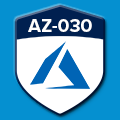Clientele ➞
























Duration: 4 Days
After completing this course, students will be able to:
Module 1: Introduction to Azure
Lessons
Module 2: Azure global infrastructure
Lessons
Module 3: Implement Azure Active Directory
Lessons
Module 4: Implement and manage hybrid identities
Lessons
Module 5: Implement virtual networking
Lessons
Module 6: Implement VMs for Windows and Linux
Lessons
Module 7: Implement load balancing and network security
Lessons
Module 8: Implement container-based applications
Lessons
Module 9: Implement an application infrastructure
Lessons
Module 10: Implement storage accounts
Lessons
Module 11: Implement NoSQL databases
Lessons
Module 12: Implement Azure SQL databases
Lessons
Module 13: Implement cloud infrastructure monitoring
Lessons
Module 14: Implement and manage Azure governance solutions
Lessons
Module 15: Manage security for applications
Lessons
Module 16: Migration, backup, and disaster recovery management
Lessons
The trainer will be Microsoft Azure Professional.
$1595
Our Partners
